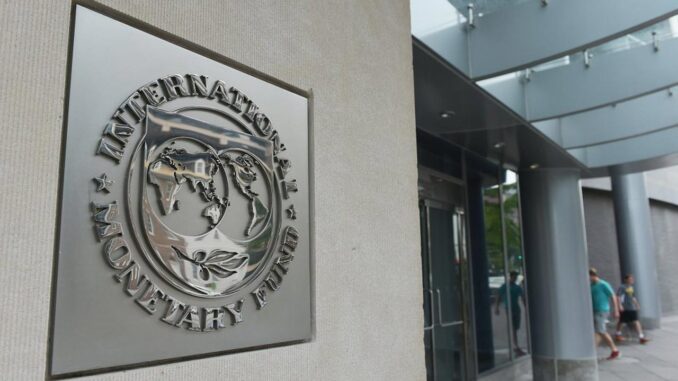
The 2021 Budget took off on schedule, but necessary reforms were not simultaneously effected. Meanwhile, the economy is in recession while the country remains the poverty capital of the world to boot. The Federal Government’s alibi for the recession is low crude oil prices occasioned by the COVID-19 pandemic coupled with the attendant economic lockdown. Nevertheless, examination of two IMF policy recommendations and a CBN policy measure on remittances, which occurred in November and December 2020, again stress the need to urgently carry out the long identified fiscal and monetary reforms as the precondition for lifting and putting the economy successfully on the path of full recovery and subsequent sustainable rapid growth.
One, IMF staff conducted a virtual mission from October 30 to November 17, 2020, in the context of the 2020 Article IV Consultation with Nigeria. At the end of the mission, the IMF issued a press release on December 11, 2020 which stated, among other things, that under the prevailing federal economic policies, the economic outlook was challenging. As in related press releases over at least the past four years, the Bretton Woods institution recommended “major policy adjustments” embracing unified exchange rate reforms with a market-based flexible exchange rate as a means of addressing recurrent balance of payments pressures and raising the medium term growth path. The IMF mission specifically enjoined that the operational monetary policy framework along with policy strategy and communication should be directed to establishing the primacy of price stability.
By way of explanation, what the IMF grandiosely termed major policy adjustments was simply a call on the Nigerian authorities to put an end to the decades-long improper fiscal and monetary procedures initiated by the defunct military regime by adopting basic economic practices, which even lower school pupils are wont to memorise and parrot in rudimentary economics lessons such as “a central bank is the bankers’ bank” and so requiring the CBN to operate in that manner.
Two, early in December 2020, three IMF departmental directors produced a joint report in which they observed that persistent apex bank interventions in the forex market might feed a false sense of security about a country’s future exchange rate developments. That observation brings to mind how the CBN has been carrying on over the years with regard to the naira exchange rate. In the guise of defending the value of the naira, the CBN has for decades running routinely intervened (it has for a long while been twice weekly) in the country’s foreign exchange markets (advisedly plural). There exists a mongrel of official and multi-segmented autonomous foreign exchange market rates. In spite of the fact that the naira is the sole legal tender, multiple currencies are in use in the mongrel market system with exchange rate fixing methods such as retail Dutch auction and wholesale Dutch auction systems changing from time to time. The medley method, as the names reveal, are based on the auction of the alien dollar currency thus requiring the prospective dollar or forex buyer to constantly depreciate the naira to guarantee his success. But such methods are detrimental to the domestic economy. From the forex auctions emerge haphazard exchange rates which the apex bank alone practically dictates without rhyme or reason. Clearly, it is incorrect to describe the medley and mongrel market exchange rates as a flexible exchange rate regime.
The record of changes in the value of the naira under the mongrel exchange rates system is not secret. The annual average official naira exchange rate peaked at N0.5464/$1 in 1980. The 2021 Appropriation Act set the official naira exchange rate of N379/$1. That rate implies that the naira lost 99.86 percent (that is, it retained just 0.14 percent) of its peak value during the intervening 40 years. In the autonomous multi-segment markets where reports indicate that $1 already could fetch N500 and that the naira figure would still rise, the retained value of the naira would drop asymptotically to zero (percent).
Intuitively, that outcome is absurd considering that on paper oil export earnings made up of US dollars from 1975 till date have accounted for over 50 percent of the annual budgets of the three tiers of government. However, following media reports that CBN spends about $16 billion annually to intervene in the mongrel forex markets for the purpose of defending the value of the naira, it is necessary to explain that the above and unexpected opposite result in the value of the naira is consistent with the existing flawed monetary practices. Under the current policies, CBN uses a fraction of the so-called CBN’s external reserves to defend the value of the naira. Recall in this regard that at the instance of the erstwhile military regime, CBN has been improperly withholding Federation Account (FA) dollar allocations as CBN’s external reserves and in their place has been substituting fiat printed naira sums at the Appropriation Act exchange rate (AAR) for FAAC to disburse to FA beneficiaries.
For the sake of simplicity, assume there was no economic lockdown in 2020. And to defend the naira in 2020, suppose CBN withheld $16 billion as CBN’s external reserves from the 2020 Appropriation Act. So using the revised AAR of $360/$1, the apex bank printed N5.76 trillion for distribution by FAAC to FA beneficiaries. Now, the substituted fiat printed N5.76 trillion funds do not represent oil export-derived naira revenue. This is so because the apex bank is the bankers’ bank. Specifically, the CBN Act bars the apex bank from all forms of trading. Therefore, CBN should not transact or deal in forex even if it is earned and owned by the tiers of government. Forex transaction and conversion are the preserve of commercial banks, which the apex bank is mandated to regulate.
To be continued tomorrow.


Be the first to comment